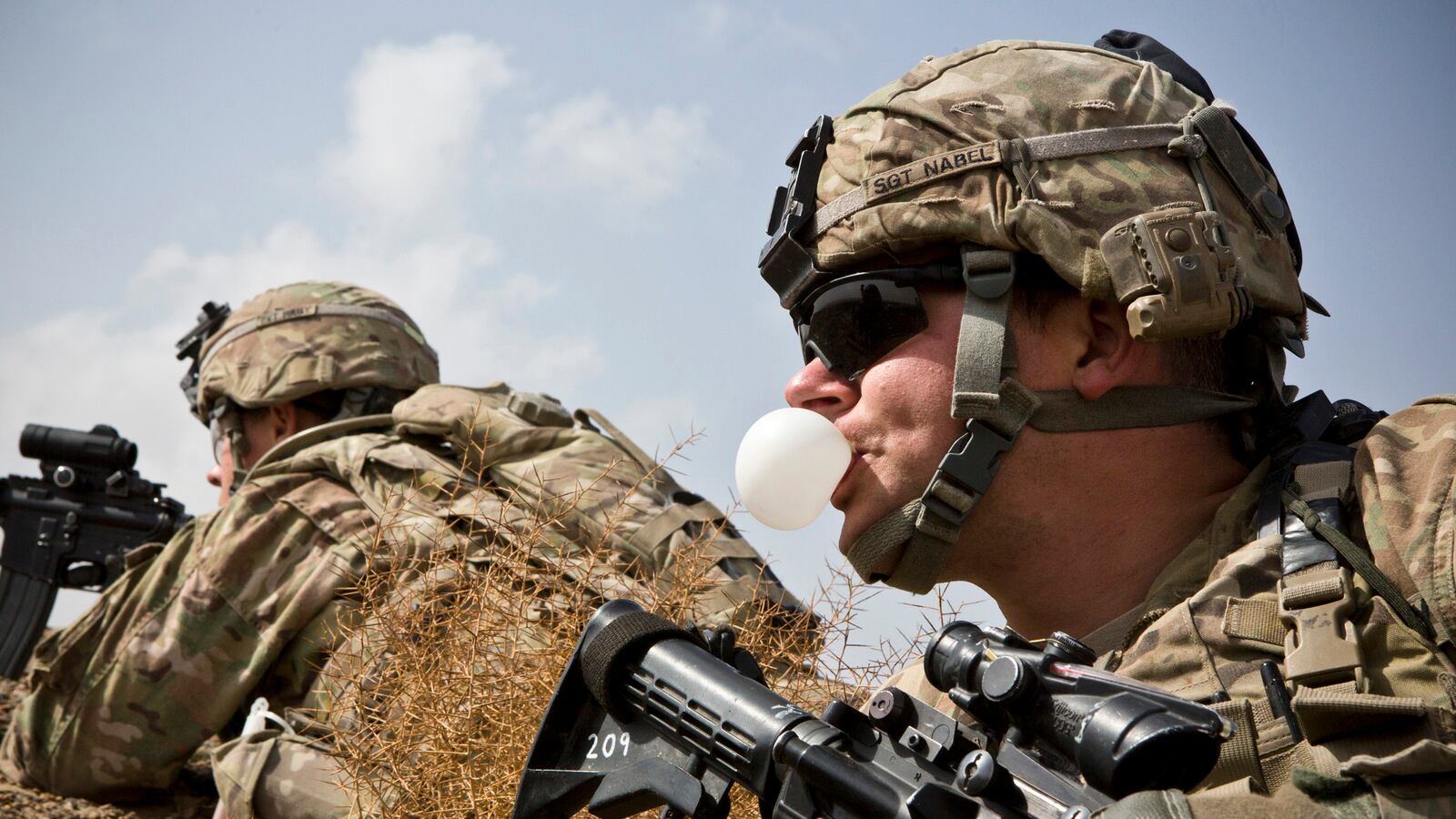America is in a unique position. As thousands of soldiers return from the battlefield with traumatic brain injury (TBI), the need for rehabilitation and treatment is expanding.
The ensuing short-term memory impairments associated with TBI can make it nearly impossible to take care of daily tasks. Remembering names, appointment times, or even the coffee you made 10 minutes ago can become a challenge. As a result, caring for those with TBI becomes a family affair.
Now, there is new hope for these patients and their families. The University of Pennsylvania and the University of California, Los Angeles won a $40 million grant from the Defense Advanced Research Projects Agency (DARPA) for their study of memory loss and its treatment. The funding comes a year after the mixed fanfare that followed President Obama’s announcement of the BRAIN Initiative.
DARPA’s funding announcement last Tuesday marked some of the first tangible steps of the BRAIN Initiative. Using the newly designated grant to develop a rising technology known as direct brain recording, there are now increased hopes to provide real clinical applications that will improve impaired memory.
With direct brain recording, scientists and physicians have the opportunity to monitor brain activity at the level of individual neurons. The technology provides an extraordinarily high-resolution picture of how the brain responds to stimuli like images, languages, and memories.
Previous techniques have been indirect at best. For instance, while a still valuable tool, fMRI machines measure brain activity from outside the brain, and the resulting data is still only a proxy for actual neuronal signaling. Conversely, direct brain recording entails placing electrodes in precise locations immediately over the cortex, the outer surface of the brain, or even deep within it, where the hallmark structures of memory are known to lie.
The two research centers that won bids for DARPA’s funding have long been working with severe epilepsy patients to study the foci of memory in the human brain. Recording electrodes have consistently been used to help identify the source of patients’ seizures in order to guide their treatment. Doctors monitor for aberrant electrical signals to identify the particular region of the brain, which, if carefully removed, could stop seizures from triggering. For epilepsy patients also struggling with memory, these procedures have offered an opportunity to place recording electrodes around the hippocampus—a long, thin structure deep within the brain—known for decades to be involved with consolidating new memories.
The University of Pennsylvania will use the grant money to couple these recording electrodes with memory games, and to study the unique electrical signals affiliated with memory tasks. The end goal is to classify what happens when the memory goes awry. There may not just be one way that memory is impaired, as seen with the various clinical presentations of memory deficits in patients with TBI, Alzheimer’s, Parkinson’s, schizophrenia, and other dementias. Understanding the variations in deficit will help guide future treatment, and perhaps offer suggestions for the development of new ones.
UCLA will take a different path, using stimulating electrodes to offer the first concrete steps toward surgically reinvigorating the memory of a patient with memory deficits. As with the recording electrodes, stimulating ones have been used for decades to help surgeons confirm sensitive steps during operations. By stimulating regions of the brain, the preservation of muscle activity and sensation can be confirmed. Dr. Itzhak Fried of Tel Aviv University and the team at UCLA have already demonstrated that using these electrodes in the entorhinal cortex—a position very close to the hippocampus—helps patients with memory deficits perform better on memory tests.
While the proposed recording electrodes and stimulation treatments will still require years of refinement, the utility of the available tools and a concrete plan over the next four years should not be overlooked. DARPA’s funding comes at an opportune time when the proof of principle has already been demonstrated.
If the research can help rehabilitate memory for America’s injured soldiers, then another 1.7 million U.S. civilians affected by TBI every year also benefit. With developments from these newly funded projects, patients may very well imagine a time when, with the right stimulation, they can become independent again.






